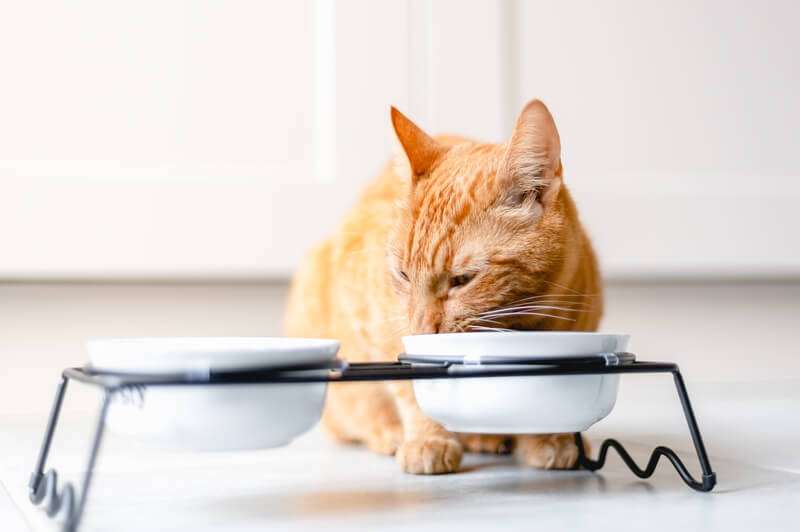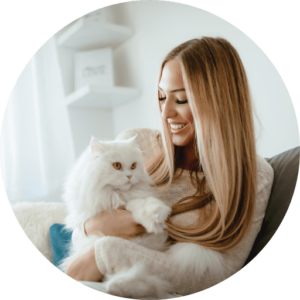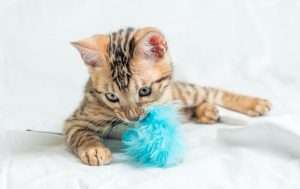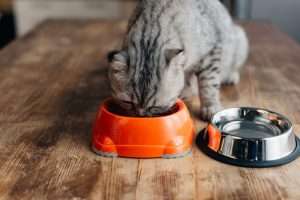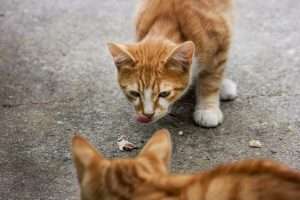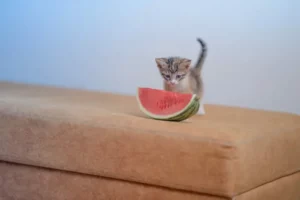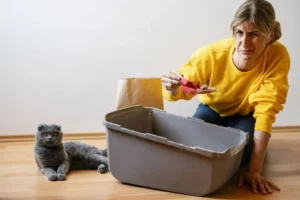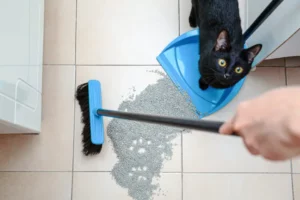Table of Contents
As a cat owner, you may be wondering if your feline friend can safely consume beans. A balanced and nutritious diet is essential for the overall health and well-being of your cat, and proteins play a vital role in their diet. Beans are a rich source of plant-based protein and fiber, making them an excellent addition to any human diet. But can cats eat beans?, and are they safe for feline consumption? In this article, we will explore the nutritional value of beans for cats, whether or not they can eat beans, and any potential risks or harm that feeding beans to cats may cause. By the end of this article, you will have a better understanding of whether or not beans can be a healthy and safe addition to your cat’s diet.
The Nutritional Value of Beans
Beans are an excellent source of protein, fiber, and other essential nutrients that are beneficial for feline health. There are several different types of beans available, including black beans, kidney beans, and chickpeas, each offering unique nutritional benefits. In this section, we will explore the nutritional value of beans, for cats and why they can be a healthy addition to their diet.
Protein
Protein is essential for cats, as it helps build and maintain muscle mass, supports a healthy immune system, and provides energy. Beans are a great source of plant-based protein, making them an excellent option for cats who may have a sensitivity or allergy to animal-based proteins. For example, a half-cup serving of black beans contains approximately 7 grams of protein.
Fiber
Fiber is important for maintaining healthy digestion in cats and preventing issues such as constipation. Beans are an excellent source of dietary fiber, which helps keep the digestive system running smoothly. For example, a half-cup serving of kidney beans contains approximately 7 grams of fiber.
Vitamins and Minerals
Beans are also a rich source of essential vitamins and minerals that are necessary for feline health. For instance, a half-cup serving of chickpeas contains approximately 45% of the daily recommended value of folate, which is essential for cell growth and development. Additionally, beans contain significant amounts of iron, magnesium, and potassium, among other nutrients.
Potential Risks and Harm
While beans can provide many nutritional benefits for cats, it is essential to feed them in moderation. Feeding too many beans to cats can lead to digestive problems, such as gas and bloating. Additionally, some cats may have difficulty digesting beans, which can lead to vomiting or diarrhea. It is always best to introduce beans to a cat’s diet slowly and in small amounts to monitor any adverse reactions.
In the next section, we will explore whether or not cats can eat beans and if it’s safe for feline consumption.
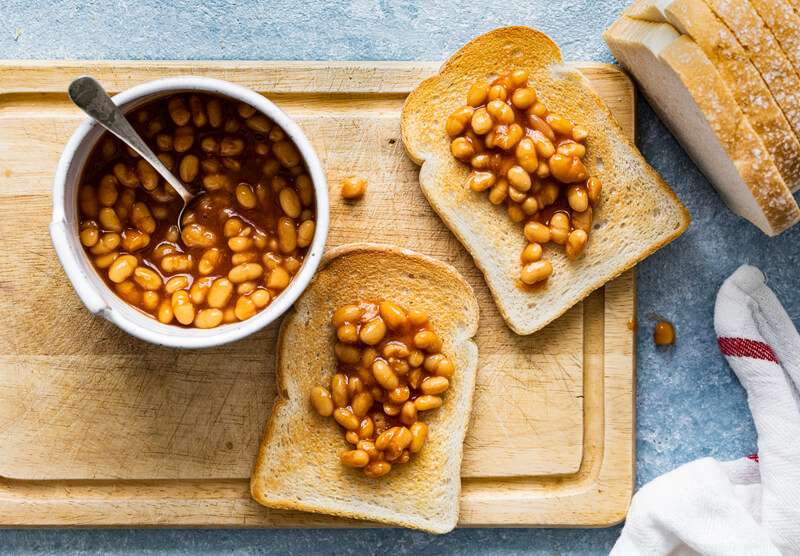
Can Cats Eat Beans?
Beans are a common ingredient in human diets, but can cats eat beans too? While beans can provide some nutritional benefits for cats, they can also pose some potential risks and harm.
Risks and harm of feeding beans to cats
One of the main risks of feeding beans to cats is the potential for toxicity. Some types of beans contain toxins called lectins, which can cause digestive problems and other health issues. For example, kidney beans contain high levels of lectins that can cause vomiting, diarrhea, and dehydration in cats. Soybeans and other legumes also contain lectins that can cause digestive upset in cats. Therefore, it is important to research the specific type of bean before offering it to your cat.
In addition to the risk of toxicity, beans can also cause digestive problems in cats. This is because cats are obligate carnivores, meaning that their digestive systems are designed to process animal-based proteins and not plant-based proteins like those found in beans. If a cat eats too many beans, they may experience gastrointestinal distress such as bloating, gas, diarrhea, or constipation.
Exceptions where beans may not be recommended for cats
There are some exceptions where beans may not be recommended for cats. For example, cats with certain health conditions such as kidney disease may need to limit their intake of beans due to their high protein and phosphorus content. Additionally, some cats may have allergies or sensitivities to certain types of beans, so it is important to monitor your cat’s reaction when introducing new foods to their diet.
Nutritional benefits of beans for cats
Despite the potential risks, some types of beans can provide nutritional benefits for cats. For example, beans are a good source of plant-based protein and can provide a variety of vitamins and minerals, such as folate, iron, and potassium. However, it is important to note that cats require animal-based proteins to meet their nutritional needs, so beans should not be relied on as a primary source of protein in their diet.
Overall, while beans can provide some nutritional benefits for cats, they should be fed in moderation and only after careful research into the specific type of bean. If you are unsure whether beans are appropriate for your cat’s diet, it is always best to consult with your veterinarian.
Alternatives to Beans for Cats
While beans can be a great source of protein and fiber for humans, not all types of beans are safe for cats to eat. However, there are other sources of protein that are safe and beneficial for cats. Here are some alternative options to consider:
Chicken: Cooked chicken is a great source of protein for cats. It is also low in fat and easy to digest. It is important to remove all bones and skin from the chicken before giving it to your cat, as they can be a choking hazard.
Fish: Fish, such as canned tuna or salmon, can also be a good source of protein for cats. However, it is important to avoid giving your cat too much fish, as it can lead to a thiamine deficiency.
Eggs: Eggs are a great source of protein and contain essential amino acids that cats need. It is important to cook the eggs before giving them to your cat to avoid the risk of salmonella.
When incorporating alternative protein sources into your cat’s diet, it is important to do so in moderation and ensure that they are receiving a balanced diet. Consult with your veterinarian to determine the appropriate portion sizes and frequency of feeding.
In addition to protein, cats also require other essential nutrients such as fats, carbohydrates, vitamins, and minerals. It is important to choose foods that provide a balance of these nutrients to ensure your cat is receiving a complete and balanced diet. High-quality commercial cat foods are designed to meet these nutritional needs and are often recommended by veterinarians.
If you are considering making changes to your cat’s diet, it is important to do so gradually to avoid digestive upset. Introduce new foods slowly over the course of several days and monitor your cat’s reaction closely. If you notice any signs of digestive upset or other concerning symptoms, consult with your veterinarian.
Remember, a balanced diet is key to ensuring your cat’s overall health and well-being. By providing them with a variety of safe and nutritious foods, you can help them maintain a healthy weight, strong muscles, and a shiny coat.
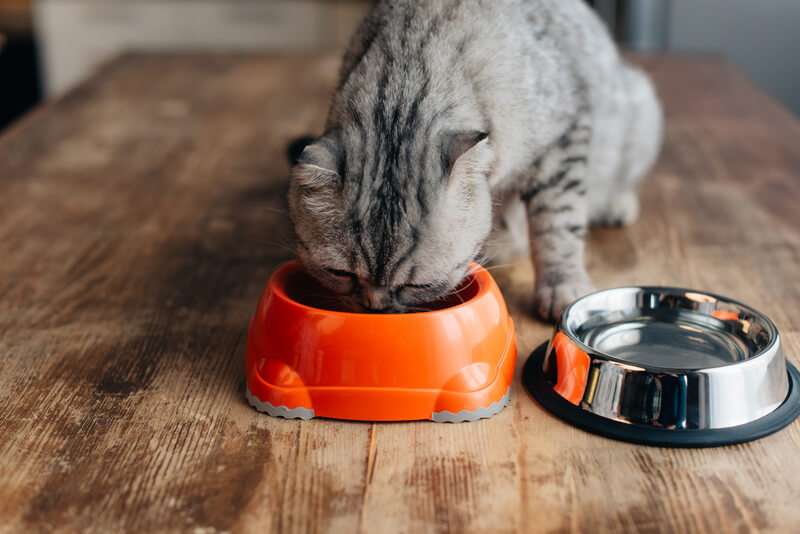
FAQs
Yes, some types of beans can be toxic to cats, such as raw or undercooked kidney beans, as they contain a toxin called lectin that can cause digestive upset and even lead to kidney failure. Therefore, it's important to avoid feeding raw or undercooked beans to cats.
Cats can eat cooked beans, but it's important to keep in mind that beans should not be the main source of protein in a cat's diet. Additionally, it's important to avoid adding any seasonings or spices to the beans, as these can be harmful to cats.
While small amounts of cooked beans may be safe for cats as an occasional treat, it's important to keep in mind that beans should not be a significant part of a cat's diet. Overfeeding beans can lead to digestive upset and other health problems.
Beans can provide a source of plant-based protein for cats, as well as fiber, vitamins, and minerals. However, it's important to note that cats require a diet that is primarily based on animal-based protein, so beans should not be the primary source of protein in a cat's diet.
If your cat has an allergy to beans, they may show symptoms such as vomiting, diarrhea, itching, and skin rashes. If you suspect that your cat may have an allergy to beans or any other food, it's important to consult with your veterinarian to determine the cause and the appropriate treatment.
Conclusion
In conclusion, cats require a balanced and nutritious diet to maintain their health and well-being. While beans can provide a source of protein and other important nutrients for cats, it’s important to understand the potential risks and harm associated with feeding beans to cats. If you’re considering incorporating beans into your cat’s diet, it’s best to consult with your veterinarian first to determine if it’s a suitable addition for your cat’s individual needs.
Remember that there are plenty of alternative sources of protein that are safe for cats to eat, such as chicken, fish, and eggs. These can be prepared in a variety of ways and incorporated into your cat’s diet to provide a balanced and nutritious meal. When choosing foods for your cat, always prioritize their health and well-being above anything else.
Lastly, if you have any concerns or questions about your cat’s diet or health, it’s always best to speak with your veterinarian. They can provide personalized advice and guidance on the best foods and feeding practices for your furry friend.


